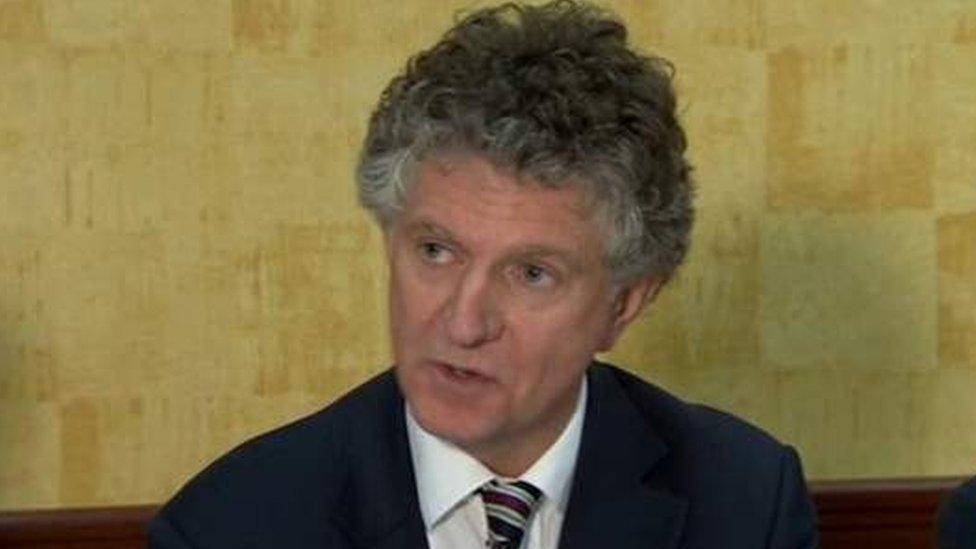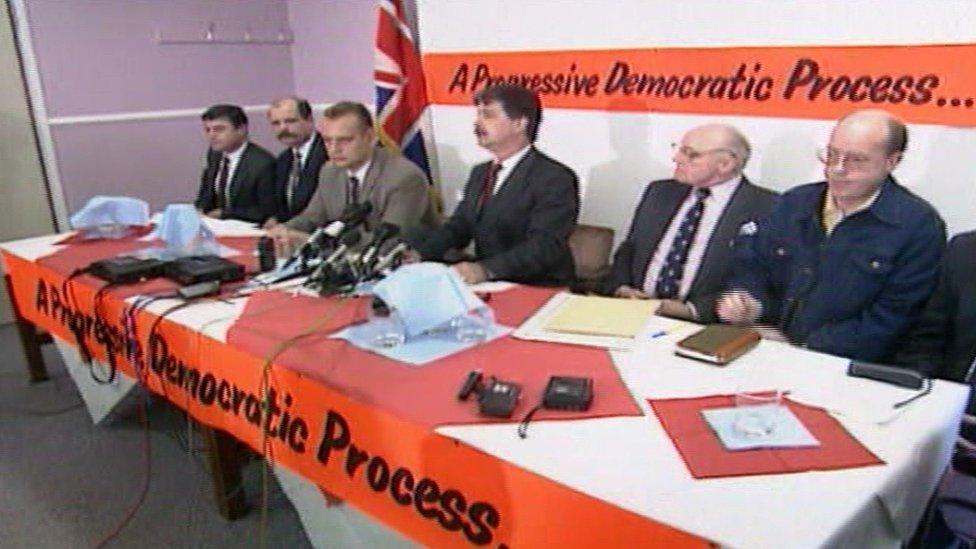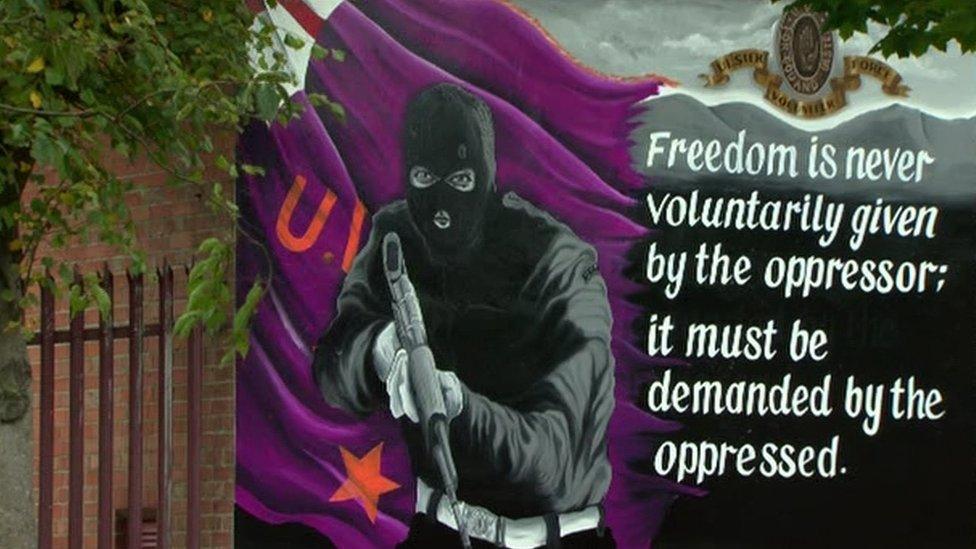Jonathan Powell and others 'risking their reputations' with loyalist initiative
- Published
- comments

Jonathan Powell was at the launch of the Loyalist Communities Council
I'm just back from the launch of the Republican Communities Council. It was fronted by a former Irish government official, but the council enjoys the support of the Provisional IRA and the INLA.
It now intends to work to tackle educational underachievement in republican areas, criminality and a sense of disenfranchisement felt by many nationalists with the political process.
Alright, that entire paragraph was a lie. I can't begin to imagine quite what the reaction from unionists would have been if it had been true.
In fact I was at the launch of the Loyalist Communities Council, backed by the UDA, the UVF and the Red Hand Commando.
The initiative was fronted by former Downing Street Chief of Staff Jonathan Powell and has been welcomed by, among others, the Church of Ireland, the Presbyterians, the Methodists, the trade unions, the Irish government and UKIP leader Nigel Farage, whose MLA David McNarry devoted 18 months to getting the council off the ground.
Both Sinn Féin and the SDLP gave the move a heavily qualified welcome.
The SDLP argues the new council is "fraught with contradictions", whilst Sinn Féin says the "continuing criminality of loyalist paramilitary groups remains a scourge in loyalist working-class areas".
The initiative was timed to fall on the 21st anniversary of the 1994 Combined Loyalist Military Command ceasefire.

Northern Ireland's biggest loyalist paramilitary groups declared ceasefires during a press conference exactly 21 years ago
More coincidentally, it emerged just before the planned publication of the police and security services' assessment of continuing paramilitary activity in the wake of the murder of former IRA member Kevin McGuigan.
'No guarantees'
What escalated the fall-out from that murder into a political crisis at Stormont was the confirmation by the PSNI that the Provisional IRA still exists, and that current IRA members may have been involved in the killing.
Which begged the question, frequently asked by unionists, why 21 years on from the IRA's 1994 ceasefire, any Provisional IRA structures should remain active?
At the launch of the loyalist council, Jonathan Powell argued it is better the loyalist paramilitary organisations exist and concentrate their efforts on pursuing legitimate objectives. If they disappear, he warned, they could be replaced with new groups solely intent on violence and crime.

The UVF, the UDA and the Red Hand Commando have all pledged their support for the initiative
Those whose loved ones have been victims of loyalist violence in the years since 1994 might well beg to differ. But the Powell argument mirrors the one made by former Irish Justice Minister Michael McDowell who told the Irish Times the IRA had been allowed to continue as "an unarmed and withering husk", external.
Of course, the loyalist and republican pictures aren't mirror images, not least because Sinn Féin has attracted tens of thousands of votes, whilst the loyalist parties failed to prosper.
Jonathan Powell was savvy enough to refuse to answer any questions about whether his argument concerning the UDA and the UVF should apply to the Provisional IRA, but it was easy to join up the dots.
There are, of course, no guarantees the council will prove any more successful than previous loyalist initiatives. Jonathan Powell regards the fate of the loyalist paramilitaries as "unfinished work" and if the initiative succeeds then both he and David McNarry will deserve plaudits.
If it fails, and the loyalists relapse into violence and crime, it won't be just the former Downing Street official's reputation which will be damaged.